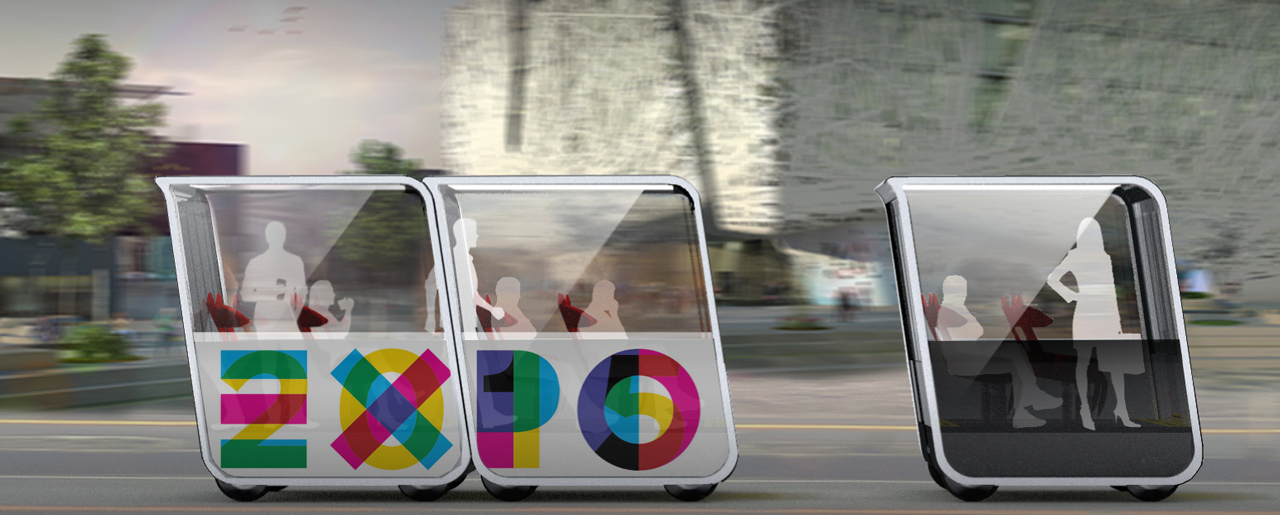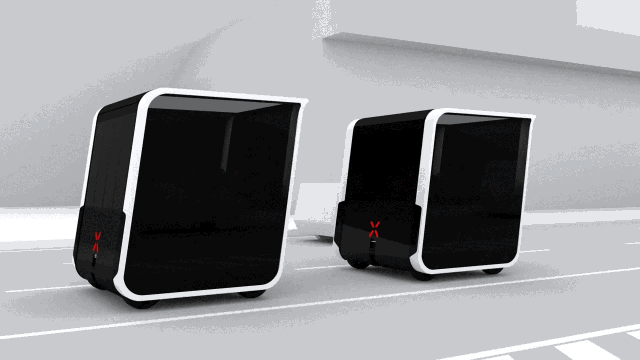Self Driving Cars
PostPosted:Wed Apr 13, 2016 4:56 pm
This is a topic I've been thinking about recently. Self Driving Cars. What will happen?
Some of my thoughts:
Safety
Humans are very error prone and dangerous drivers. Thousands die in car accidents every year. Self Driving Cars (SDCs), far from being scary, will be a improvement over the current state of affairs in many ways. I'm sure that there will be accidents with SDCs but we need to look at things objectively and compare accident rates with those of human drivers. Eventually (50 years?) when SDCs become mainstream, I can see a drive to outlaw human driven vehicles within urban areas for safety reasons. The biggest concern I'd have safey-wise is that these SDCs could be hacked.
Ownership
I believe that the current model of everybody-owns-their-own-car is unsustainable. The least expensive cars cost half the average American's salary when new. Then there's upkeep, insurance, & gas averaging $9,000 a year in the US. The average car sits unused for like 92% of the time. Most people drive alone in a car that sits 4-6. A far more efficient model would be fleets of robo-taxis on call at a moments notice from smart devices. This is the ultimate goal for companies like Uber: the current model with human drivers is just temporary while they work out the issues with their logistics software. The cars would position themselves in a location algorithmically determined to be the closest to demand and would quickly (a couple minutes) come to pick you up. Costs for these robo-taxis would be far cheaper than current taxis as there would be no human driver to pay/insure. At a certain point, I think many people (at least in cities & suburban areas) will choose to ditch car ownership in favor of these services. Perhaps they'll do pay-per-mileage or a subscription service or something in between.
Traffic
With the potential for SDCs to coordinate and drive closer together, I see traffic jams as a thing of the past. Especially if SDC services allow riders to reduce fares by sharing rides or if smaller Single Occupant "pod" cars become more prevalent. Eventually if all traffic is automated, stop signs and traffic lights would be unnecessary.
Car Companies
I think car companies will see the potential loss of sales due to declining car ownership and will try to fight against self-driving cars. They'll exaggerate safety issues, push regulations against automation, try to buy up companies, etc. This is why I think the only way forward is for tech companies (like Apple, Google, & others) to get in the car game.
Employment
The biggest downside to SDC is loss of driving jobs. Potentially everyone from taxi drivers, bus drivers, delivery drivers, even most mechanics will lose their jobs over the coming decades. What to do for them? Will the economy find new jobs for them or will they join an expanding pool of unemployed. Will the government have to make work for them or just pay them to do nothing (Minimum Income)? Maybe space exploration???
Privacy
Another concern is privacy. If you have to interface with the Internet just to drive, the government (or whoever) will be able to follow your every move effortlessly.
Public Transportation
I think that most public transportation will go away if SDC services become inexpensive and efficient enough. Sure, in super dense places like Manhattan, Tokyo, London, etc, there will still need to be public transportation (mainly trains). There's no way the roads could handle that many cars. However, in many places (especially in the US & Canada) where cars are the only viable form of transportation, people will finally be able to get around without having to be able to drive. Especially in suburban areas designed around cars, the bus system outright sucks. Buses only coming every 1/2 hour to hour. SDC will be a godsend to people who can't drive in these areas. I even see the potential for SDCs to coordinate and even link together in a sort of "car train" for long distance travel/commuting.


Image Source: FASTCODESIGN
Changes to cities
If SDC services become prevalent, I see a vastly reduces need for things like parking lots, garages, and structured parking. What will be done with this space? In cities I see potential for urban infill (new apartments, offices). This will reduce the rental shortage and make housing more affordable. In suburban areas... re-wilding? planting prairies or trees where once there was asphalt? Roads can be narrowed as traffic becomes safer and less prone to "jams". This will save municipalities millions. Cities will also save on traffic enforcement. I also see the potential for MORE suburban & rural sprawl as commutes become easier. If you can read/eat/game/work/sleep while driving, then who cares if your commute takes an hour?
Walking/Biking
With fewer error prone human drivers in the picture, I see an increase in walking and cycling. This is especially true if parking in urban centers is converted to living spaces as it is no longer needed.
Best Case Scenario
In the best case, we're moving to a world where we'll no longer need to own and maintain cars. We'll be able to call up an electric robo-taxi via our smartphones in minutes. Once I'm done, the car will go off to wait for the next passenger or recharge from some sustainable energy source. People who were formerly professional drivers will have moved onto newer & better careers that we can't foresee today. Traffic fatalities and traffic jams will become a thing of the past. I doubt everything will go perfectly but I do hope for the best.
Thoughts?
Some of my thoughts:
Safety
Humans are very error prone and dangerous drivers. Thousands die in car accidents every year. Self Driving Cars (SDCs), far from being scary, will be a improvement over the current state of affairs in many ways. I'm sure that there will be accidents with SDCs but we need to look at things objectively and compare accident rates with those of human drivers. Eventually (50 years?) when SDCs become mainstream, I can see a drive to outlaw human driven vehicles within urban areas for safety reasons. The biggest concern I'd have safey-wise is that these SDCs could be hacked.
Ownership
I believe that the current model of everybody-owns-their-own-car is unsustainable. The least expensive cars cost half the average American's salary when new. Then there's upkeep, insurance, & gas averaging $9,000 a year in the US. The average car sits unused for like 92% of the time. Most people drive alone in a car that sits 4-6. A far more efficient model would be fleets of robo-taxis on call at a moments notice from smart devices. This is the ultimate goal for companies like Uber: the current model with human drivers is just temporary while they work out the issues with their logistics software. The cars would position themselves in a location algorithmically determined to be the closest to demand and would quickly (a couple minutes) come to pick you up. Costs for these robo-taxis would be far cheaper than current taxis as there would be no human driver to pay/insure. At a certain point, I think many people (at least in cities & suburban areas) will choose to ditch car ownership in favor of these services. Perhaps they'll do pay-per-mileage or a subscription service or something in between.
Traffic
With the potential for SDCs to coordinate and drive closer together, I see traffic jams as a thing of the past. Especially if SDC services allow riders to reduce fares by sharing rides or if smaller Single Occupant "pod" cars become more prevalent. Eventually if all traffic is automated, stop signs and traffic lights would be unnecessary.
Car Companies
I think car companies will see the potential loss of sales due to declining car ownership and will try to fight against self-driving cars. They'll exaggerate safety issues, push regulations against automation, try to buy up companies, etc. This is why I think the only way forward is for tech companies (like Apple, Google, & others) to get in the car game.
Employment
The biggest downside to SDC is loss of driving jobs. Potentially everyone from taxi drivers, bus drivers, delivery drivers, even most mechanics will lose their jobs over the coming decades. What to do for them? Will the economy find new jobs for them or will they join an expanding pool of unemployed. Will the government have to make work for them or just pay them to do nothing (Minimum Income)? Maybe space exploration???
Privacy
Another concern is privacy. If you have to interface with the Internet just to drive, the government (or whoever) will be able to follow your every move effortlessly.
Public Transportation
I think that most public transportation will go away if SDC services become inexpensive and efficient enough. Sure, in super dense places like Manhattan, Tokyo, London, etc, there will still need to be public transportation (mainly trains). There's no way the roads could handle that many cars. However, in many places (especially in the US & Canada) where cars are the only viable form of transportation, people will finally be able to get around without having to be able to drive. Especially in suburban areas designed around cars, the bus system outright sucks. Buses only coming every 1/2 hour to hour. SDC will be a godsend to people who can't drive in these areas. I even see the potential for SDCs to coordinate and even link together in a sort of "car train" for long distance travel/commuting.


Image Source: FASTCODESIGN
Changes to cities
If SDC services become prevalent, I see a vastly reduces need for things like parking lots, garages, and structured parking. What will be done with this space? In cities I see potential for urban infill (new apartments, offices). This will reduce the rental shortage and make housing more affordable. In suburban areas... re-wilding? planting prairies or trees where once there was asphalt? Roads can be narrowed as traffic becomes safer and less prone to "jams". This will save municipalities millions. Cities will also save on traffic enforcement. I also see the potential for MORE suburban & rural sprawl as commutes become easier. If you can read/eat/game/work/sleep while driving, then who cares if your commute takes an hour?
Walking/Biking
With fewer error prone human drivers in the picture, I see an increase in walking and cycling. This is especially true if parking in urban centers is converted to living spaces as it is no longer needed.
Best Case Scenario
In the best case, we're moving to a world where we'll no longer need to own and maintain cars. We'll be able to call up an electric robo-taxi via our smartphones in minutes. Once I'm done, the car will go off to wait for the next passenger or recharge from some sustainable energy source. People who were formerly professional drivers will have moved onto newer & better careers that we can't foresee today. Traffic fatalities and traffic jams will become a thing of the past. I doubt everything will go perfectly but I do hope for the best.
Thoughts?